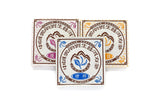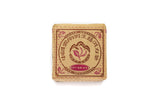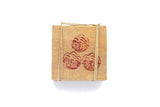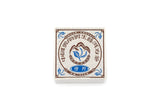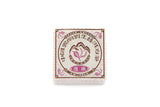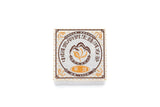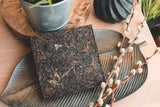Yee On Tea Co.
Six Famous Pu-erh Mountain Raw Pu-erh Tea (Set 2 of 2) - 2002 (Yi Wu, Youle, and Manzhuan)
The origin of Pu-erh tea in Yunnan, China began from the Tang Dynasty, and it became famous all over China in the Ming Dynasty. Because of the distribution of Pu-erh trade in Pu-erh Township, it was named Pu-erh Tea. Throughout the years, Yiwu, Yibang, Youle, Gedeng, Zeng, Mangzhi, Jiabu, Manzhuan, and Mansa were recorded as famous tea mountains and there was a general belief that Yiwu and Yibang tea are superior to other mountains.
Due to the acquisition of tea merchants, the trafficking and publicity of the six tea mountains. The ranking of these mountains has always been different. So in 1957, the Xishuangbanna Dai Ethnic group Autonomous Prefecture of the People's Government organized a task force to rank the quality of these mountains. Jiang Quan, the director of the Tea Research Institute of the Academy of Agricultural Sciences of Yunnan Province at that time, was responsible as the leader of the team. They will travel through Yunnan for a month and a distance of more than 1,200 miles. They investigated the water sources, soil samples, and climate conditions when visited the villages of these six major tea mountains. They also researched the relevant materials, visited many informed old village residents, investigated the engraved stone records, and discovered many valuable pieces of evidence and information about the history of the six famous mountains.
In summary, Mangzhi Mountain is located in Yibang District, 15 miles away from Gedeng. Its area and annual output are not substantial, its territory is really within the range of Gedeng. Jiabu, Xikong is located between Manzhuan and Yibang. In the Yibang area, the area is smaller than Mangzhi. The three places are also included in the Yibang mountain range. And Yiwu, Youle, and Mansa occupy a wide range of areas and large tea plantations and substantial tea production. It is therefore logical that they are listed as one of the six tea mountains. According to the above research, the order of the six tea Mountains in terms of the territory, the area of tea plantations, and the annual tea production, the ranking should be Yi Wu, Yi Bang, Youle, Mansa, Manzhuan and Gedeng.
Our Set of "Six Famous Pu-erh Tea Mountains" wild-grown raw Pu-erh tea brick uses the fresh spring tea leaves from the above six famous Pu-erh tea mountains each with its unique characters. It is a pure natural beverage, free of pesticides and fertilizer. Processing procedures including high temperature steaming to soften the tea leaves then pressed into a square shape by traditional stone weight and wooden mold, The slim square shape also enables the tea brick to age in a more efficient manner. Then stored in our professional warehouse for the post-fermentation process. This natural ageing process will bring out the true character of Pu-erh tea as the richness of fragrant, taste becomes mature and mellow with time. It will also aid digestion if drunk regularly. This set of connoisseur tea bricks is created to relive the legend and history of the Six Famous Mountains at the height of its popularity during the Ming and Qing dynasty. Carefully monitored every step of the production and storage procedures by our experienced team to bring out the delicate and unique differences and characters of each of the Six Famous Mountains. An ideal set for tea tasting and appreciation party.
Limited annual production: 2000 sets

General Guide to brewing Pu-erh Tea
Steep Pu-erh tea in hot boiling water. The ratio of tea leaves to water is approximately 1:4 to 1:5. or 8 grams of tea to 125 ml. of water.
First steep for 5 to 10 sec and discard the water to clean and heat the tea leaves. Steep for 20 seconds, and lengthen the time for each subsequent infusion.
The number of infusion can range from 10 to 20 times.

